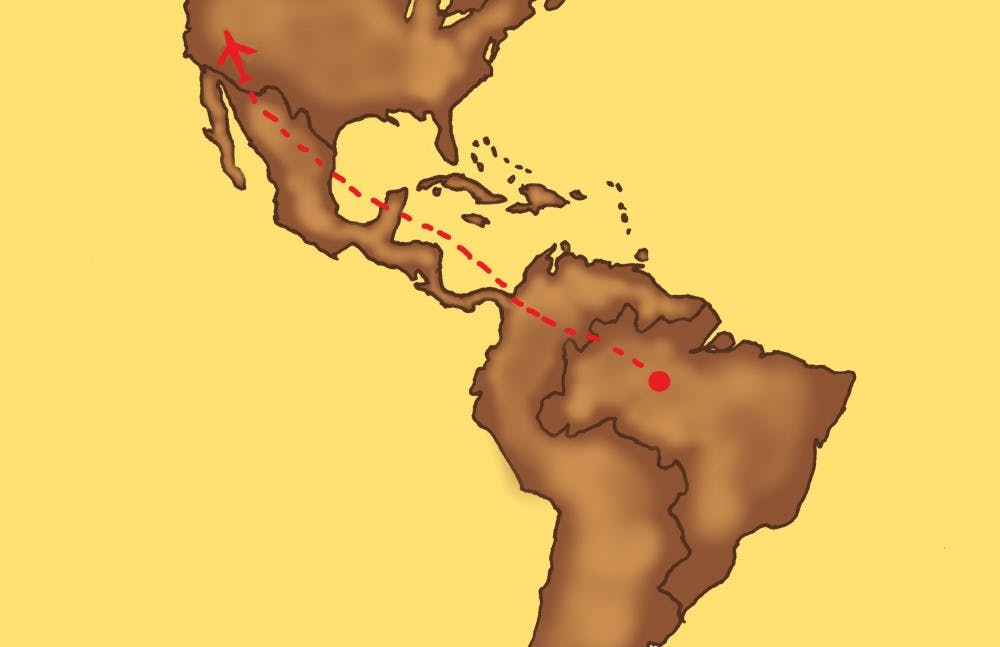The U.S. Embassy in Brazil recently sent 34 Brazilian teachers to ASU in an effort to improve English teaching in their country.
Bilingualism in Brazilian Public Education is a four-week long program in which Brazilian teachers learned how to teach English and other subjects in English in their classrooms.
Dianna Lippincott, strategic innovation manager for Global Launch, said that as the English language becomes more widely spoken in the science and business fields, it is becoming increasingly important for people around the world to learn English.
“Countries that have higher levels of English proficiency actually have higher GDPs,” she said. “English is the language of international trades, the language of science and a lot of international initiatives — the common language is English. Countries that invest in their English proficiency improve their international standing.”
Brazil ranked 53rd out of 88 other countries and regions in English-speakability in 2018, according to English First.
The University's bid to invite these teachers came after the U.S. Embassy in Brazil put out a request in search of a place to host the program and ASU’s Global Launch sent its proposal to the consulate in August 2018.
Over the duration of the program, the teachers worked with ASU faculty to put together learning materials for children in grades K-12 that would check off requirements with the embassy.
The teachers participated in five classes, one of which focused on integrating English with other courses, such as teaching science or math in English, the program's academic lead Alissa Nostas said.
Global Launch has worked on projects like this in the past, and the group used similar materials and tailored the lessons to Brazilian classrooms.
The program's participants also took a professional development course which allowed them to reflect on how they could take what they’ve learned back to their peers to change the educational system.
Participants came from four different cities in Brazil, which allowed them to network during their four weeks at ASU and see the different perspectives other Brazilian teachers hold, Global Launch innovation coordinator Allison Weidemann said.
During their stay, the Brazilian educators visited Arizona schools with strong dual-language approaches to education and observed the way Arizona teachers approached it. The teachers were also able to connect with several Brazilian educators teaching in Phoenix and share their experiences with the American system.
The teachers stayed in a hotel during the first three weeks of the program and then stayed with Arizona families for their final week.
“They got to see what Americans eat at home, how they interact with each other,” Lippincott said. “The families took them on outings to show them their favorite parts of Phoenix. So that was a really great experience for them to learn about America in that way.”
Eduardo Vasconcellos, a participating teacher and the principal of a bilingual middle school in Nova Iguaçu, said he and his school saw the benefit of having a 12-base lesson plan that would not only teach the language, but would incorporate English as a way of teaching other courses.
"Teachers were only focusing on raising that understanding, but not exactly acquiring the vocabulary which was necessary to improve the students' skills in terms of not only acquiring English as a foreign language but also understanding and also acquiring concepts of other subjects in English," he said.
Vasconcellos said that those in Brazil who can speak English in addition to Portuguese have higher salaries than those in the workforce who do not, which is one example of how English is considered an asset in the country.
Because of its emphasis on bilingualism, this program will help Brazilian students with international competitions, projects and events such as science fairs.
“Some of the motivation for this program came from science,” Kaitlin Decker, a global educator for the program, said. “There are students going to science fairs and not being able to compete as well because they didn't have the English level, and maybe at least on a small scale they can, through the content-based instruction, bring science and English together and be more successful in those competitions.”
Reach the reporter at nschon@asu.edu and follow @schonn2 on Twitter.
Like The State Press on Facebook and follow @statepress on Twitter.




